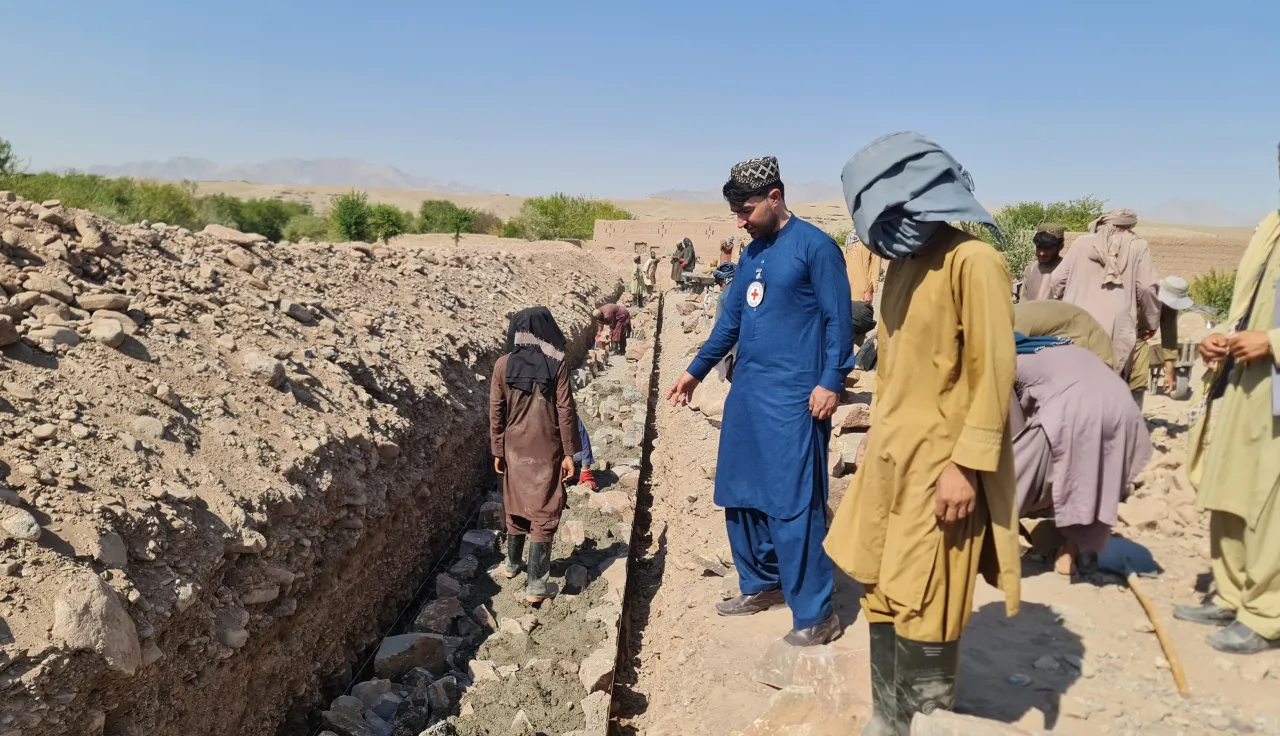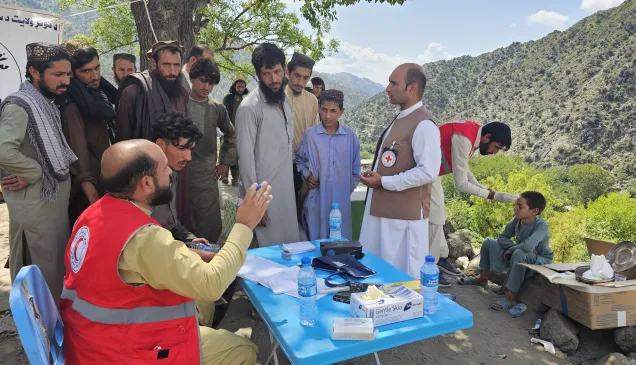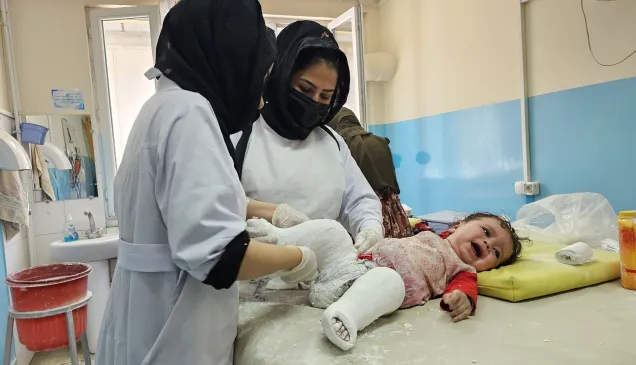Afghanistan: 2024 Operational facts and figures

In 2024, communities in Afghanistan continued to face significant challenges to access basic necessities such as healthcare, food and clean water. The humanitarian situation in the country remains extremely dire as a result of decades of armed conflict, economic hardship and natural disasters.
The International Committee of the Red Cross (ICRC) worked to respond to humanitarian challenges across Afghanistan by supporting healthcare, providing physical rehabilitation services, assisting people in establishing livelihoods and incomes, and improving access to clean water, sanitation and energy.
We also continued to visit places of detention to improve the conditions for detainees and advocate for them to be treated humanely and their rights to be respected. As Afghanistan remained one of the most heavily weapon-contaminated countries in the world, our teams have worked alongside our Afghan Red Crescent Society partners to raise awareness of mine risks within communities and promote the right behaviors to adopt to stay safe.
A look at the measurable impact of our work in 2024:
-
964,259 patients, (65 per cent women and children), received primary health care at 47 health facilities of the Afghan Red Crescent Society (ARCS) that are supported by the ICRC.
-
312,371 doses of routine vaccinations were administered and 8,788 malnourished children benefited from the ARCS nutrition programme at the 47 clinics.
-
215,274 patients were assisted in 7 ICRC-supported physical rehabilitation centres.
-
34,036 prostheses and orthoses were manufactured, and 325,313 physiotherapy sessions were held.
-
44,992 people received multipurpose cash assistance in Balkh, Badakhshan, Baghlan, Faryab and Nangarhar to meet their basic needs.
-
50,584 farmers received cash grants to buy seeds, fertilizer, and tools to improve agricultural production.
-
Around 460,000 people benefited from improved electricity supply in Zabul, Mazar, Kandahar, Helmand, Khost and Herat provinces.
-
Over 1,120,000 people living in urban areas in Kabul, Herat, Faizabad, Kandahar, Maimana, Khost, Kunduz, and Shindand had improved access to clean drinking water.
-
191 cases of missing people were resolved and their whereabouts ascertained.
-
155 Red Cross messages (containing brief family news) and 6 salamats (oral short messages) were exchanged between detainees and their families.
For more details, access the full document below.



